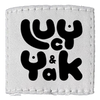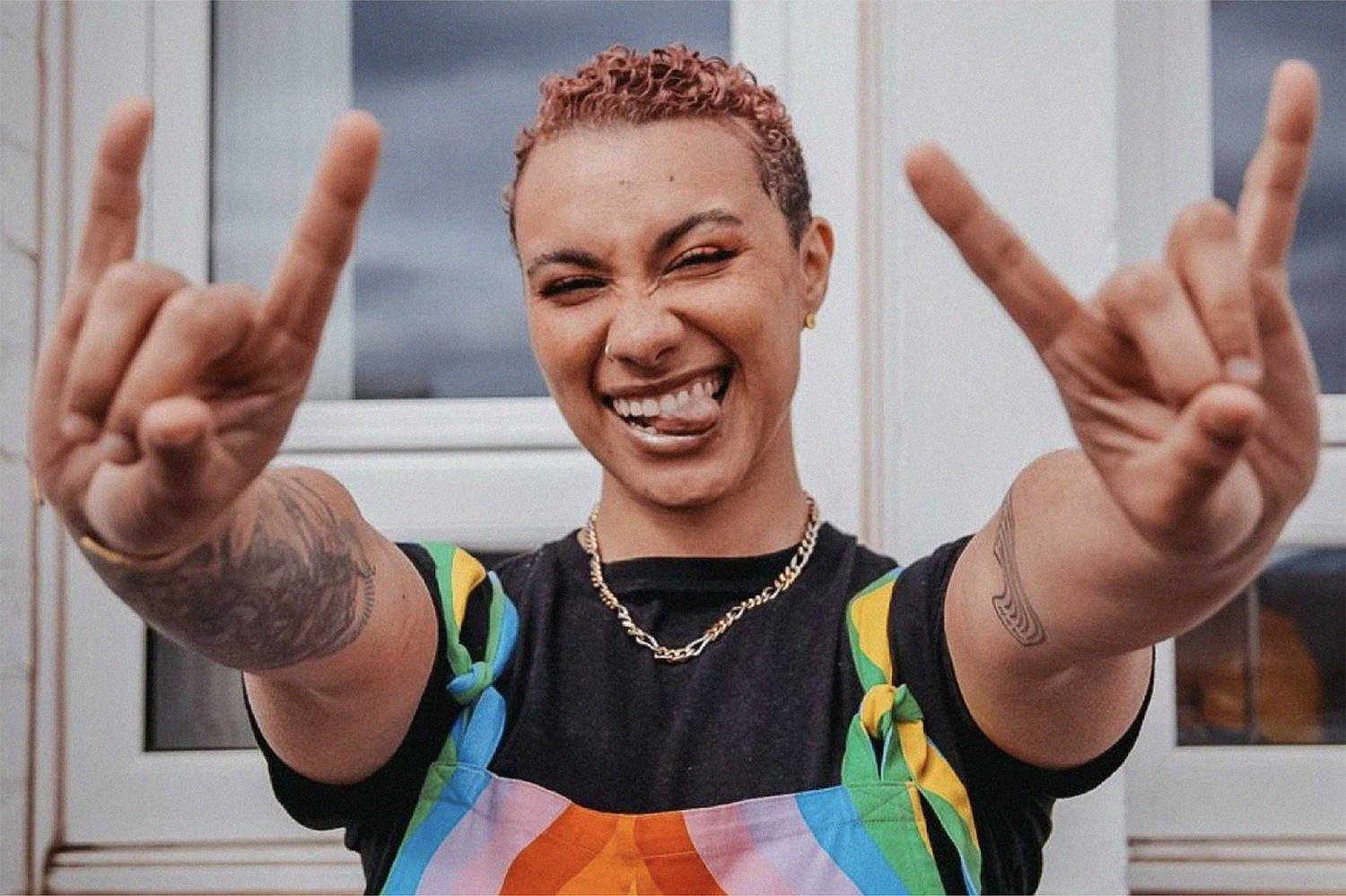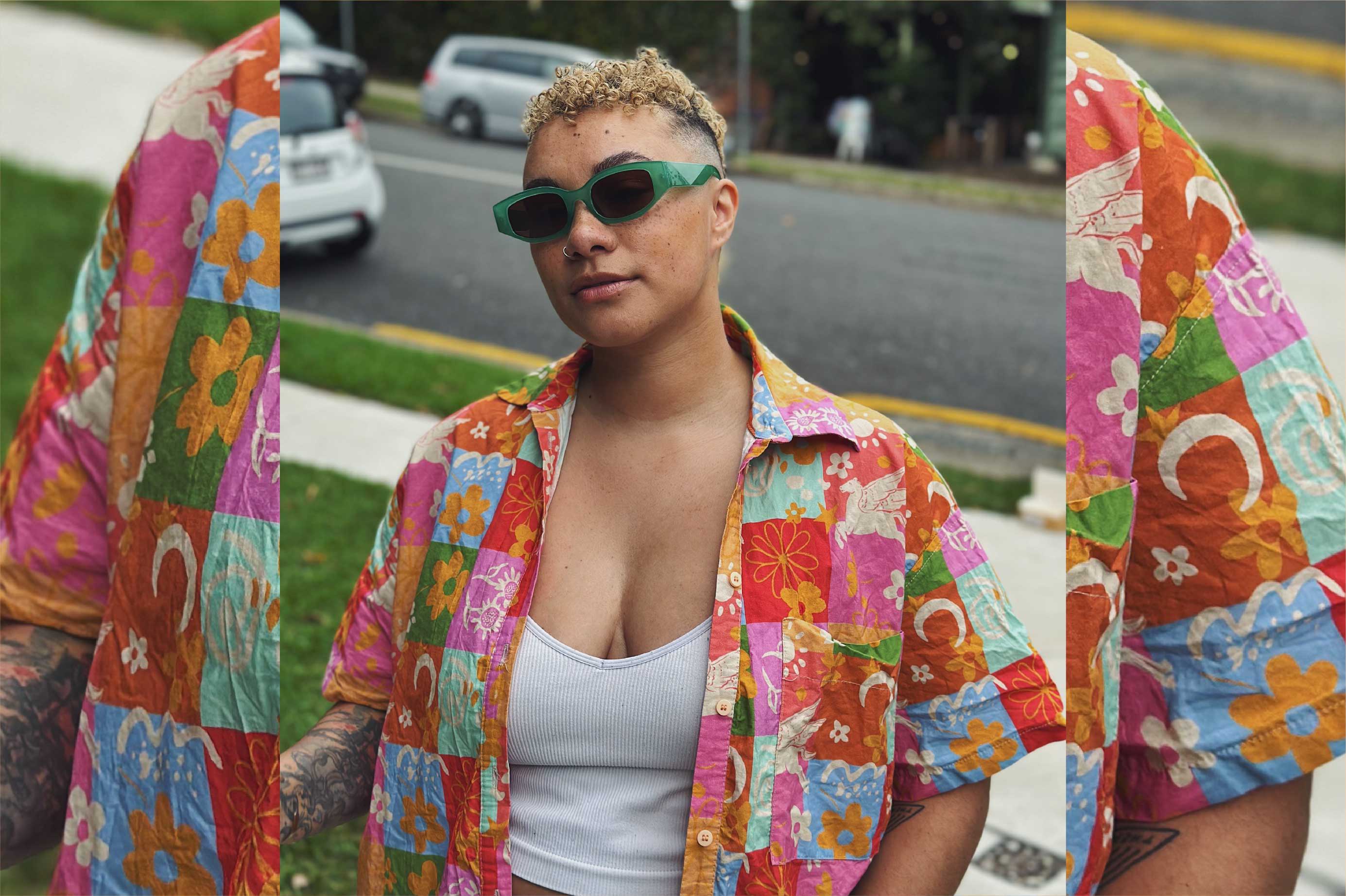Three years ago my style was relatively straight forward. I was a powerlifter, living in sunny Australia and I identified as a bisexual woman. I didn’t put a lot of thought into my fashion - I’d usually wear some variation of “tight top, loose pants” at work and outside of that I’d live in my activewear. Yeah, I was that girl. At the time I was very dedicated to my training, about five years into my powerlifting ‘career’ and the strongest I’d been. Powerlifting was pretty central to my identity, and so my style really exemplified that. There was a thought, partly conscious, partly not, that I wanted to look like a lifter. I wanted to look strong. I wanted to show off my toned legs and defined arms. And, underpinning it all, I didn’t want anyone to mistake my muscles for being “big”.
I hated wearing t-shirts, thinking they’d “hide my gains” and looking back I clearly had an overwhelming dysphoria that anyone could even think I was big in the first place. I was a size 8-10, super fit, but was still viewing myself through the harshest, most critical eyes. Eyes had been with me my entire life. I thought, mistakenly, that by focusing on strength over aesthetics, as powerlifting does (versus say, bodybuilding), that I had cured my relationship with food, that I was finally free from that mindset that had plagued me ever since I was fourteen and going on crash-carb-free diets.
However, it wasn’t until years later, when I started to reevaluate my relationship with gender that I felt this internalised fatphobia rear its ugly head. Kind of like a dragon in slumber or a dormant volcano, momentarily subdued but devastatingly dangerous at any given time.
And it all started with coming out.
I first came out in 2020 as a lesbian and a year after that I “came out” as non-binary. Or rather, I started playing around with the pronouns in my bio, because that’s how it was for me.
Coming out as gay was gradual but a fairly loud thing - I told everyone in arms distance about my incredible [then-long distance] girlfriend, I wore bright rainbow socks, button-up ‘party shirts’ and you could find me in a beanie at any time, even at the gym in 35+ degree weather because #gay. I was THAT baby-gay, after 27 years I finally knew who I was and needed everyone around me to know, too.
On the flip side, coming out as non-binary was a much more subtle, slow and arduous process. Over the course of 6 months I changed my bio from ‘she/her’ to ‘she/they’, to ‘they/she’ and finally, to ‘they/them’. Interesting how subtle these changes are - a few letters in a social media profile - compared to how huge the changes felt inside of me. You know how people say they have two wolves inside them, fighting each other? Well, my wolves weren’t fighting each other, they were fighting me.
Before I knew it, I was deep in this process of what felt like everyday learning, and unlearning. For instance, I learned that binary gender was a construct, something that was spread across the globe as the world was colonised. I learned many Indigenous cultures, from the First Nations people of Australia, the Māori of Aotearoa (New Zealand) and Native American people had a much more free-flowing understanding of gender. I started to wonder, as a Papua New Guinean person, what this could mean for me?
While there wasn’t any specific documentation that I’d found about pre-colonialist Papua New Guinean culture, I felt empowered by other Indigenous and people of colour that had rejected the gender binary, along with other Western beauty standards that I was defined by my entire life. So bit by bit, I started to actively rebel against and unlearn this colonialist view of gender, eventually landing on the label ‘gender non-conforming’. Even now, over two years on, I like that terminology the best, because after three decades of masking, morphing, assimilating - I relish in the concept of not conforming.
As my understanding and relationship with gender evolved, my style evolved with me.
I began gravitating towards looser clothing. I swapped my millennial skinny jeans for baggy mom-jeans and layered on baggy t-shirts. I found Lucy & Yak, and immediately HAD to purchase (and live in) the Rainbow Dungarees - making it my personality trait for an entire season. My makeup also changed drastically, and I started to play with a tonne of colour - buying neon eyeshadow palettes with names like Orange Soda and Frosted Lime and creating new, bold looks almost daily.
I cut off my hair, my 11 year old black and red locs, and embraced my natural curly hair - a BIG ‘homecoming’ moment for me. Another act of rebellion. With each change, each experiment, I felt like I was unlearning the male gaze. After 27 years of conforming to heteronormative beauty standards I finally felt unapologetically queer. And mostly importantly - unapologetically ME.





